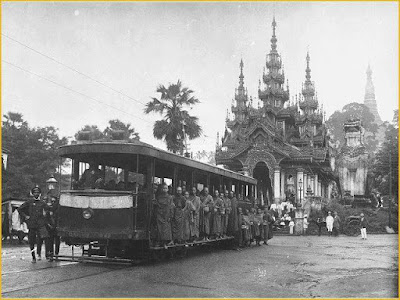Double-Think
My generation, the ‘Baby Boomer’ generation6 who grew up with the ‘Angry Young Men’,7 read George Orwell and Aldous Huxley, and listened to the Beatles and the Rolling Stones; therefore, we definitely had a smug feeling that we were ‘free’ and ‘liberal.’ We were thinking we were better than other ‘uncivilised’ nations and races. I say that a lot of people were during Post-War Britain.
Ironically, Orwell wrote about ‘double-think’,8 and criticised others for ‘double-thinking’; however, he himself was an expert in double-think. He pretended to have liberal and socialist ideas. On the other hand, he also marketed ‘English’ values and ‘superiority,’ along the lines of ‘it could not have happened in England.’9 In other words, the goose step, surveillance, and national identity cards were things that belonged to fascist and authoritarian nations such as Germany, Spain, Italy, and the Soviet Union. However, were things really that different in Britain?
Government Control
There was obviously a high level of governmental control over citizens in Britain during WWII and the post-war period. Of course, I am not suggesting this was at the same level of control as in Nazi Germany. However, recent events in Britain and Europe (2021-2022) show that ‘it can easily happen here.’ There ARE various governmental and police control of people based on national identity, race, and religion. Compare it with Brexit; it brought about increased control over the rights and movement of European citizens.
This contradicts one of the basic democratic rights and freedoms – the free movement of workers.10 The xenophobia drove Brexit and restricted the movement of labour. It also erected protectionist walls. Even more, it has “cracked Britain’s economic foundations.”11 I don’t want to say “I told you so”, but this is what we know. Moreover, this state of social control and economic restrictions has grown even worse during the COVID-19 pandemic (2020-2022).
Consequently, it came as a surprise to me to find these ‘Identity Cards’ and ‘Ration Books’ (1)(2). The former was issued over a 13-year period, while the latter, over a 14-year period. Wartime measures continued for roughly ten years after the end of the war. This was despite the fact that the war ‘only’ lasted six years. This is because many people of my generation grew up without governmental control of people’s rights and movements. This is a complicated issue that we are unable to look into at this time. Ironically, one website says that rationing during the war improved national health.
My Parents’ POV
My parents blindly accepted governmental control and their ‘duties’ during the war as ‘normal.’ I never heard my parents utter one word of protest about oppressive government policies. I think the only thing my father said was that one should be wary of pipe-smoking prime ministers because they raise taxes on cigarettes (referring to Harold Wilson). My father was previously a pipe-smoker; around 1960, my mother had demanded that he had to quit his ‘dirty’ pipe-smoking and start smoking ‘clean’ cigarettes. Cigarettes were perhaps more expensive than pipe tobacco.
Sources
6 The generation is often defined as people born from 1946 to 1964, during the post–World War II baby boom. https://en.wikipedia.org/wiki/Baby_boomers
7 The “angry young men” were a group of mostly working- and middle-class British playwrights and novelists who became prominent in the 1950s. The group’s leading figures included John Osborne and Kingsley Amis; other popular figures included John Braine, Alan Sillitoe, and John Wain. https://en.wikipedia.org/wiki/Angry_young_men See also: Harkness, Ian. 1995. Look Back on Anger. A Study of the Drama and Fiction of the ”Angry Young Men”, and the ”New Wave” Film Adaptations of these Texts. Master’s thesis presented to the University of Oslo.
8 Doublethink is a process of indoctrination in which subjects are expected to simultaneously accept two conflicting beliefs as truth, often at odds with their own memory or sense of reality. (…) George Orwell coined the term doublethink (…) in his 1949 novel Nineteen Eighty-Four. https://en.wikipedia.org/wiki/Doublethink
9 Orwell, George. “The Lion and the Unicorn: Socialism and the English Genius”. 1941.
10 https://www.europarl.europa.eu/factsheets/en/sheet/41/free-movement-of-workers Read: 17 January 2023.
11 https://edition.cnn.com/2022/12/24/economy/brexit-uk-economy/index.html Read: 17 January 2023.



